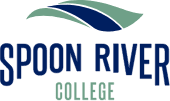Resumes
Webster’s Dictionary defines a resume as a “set of accomplishments.” Just as no two people are alike, your resume should be as unique as you are. There are hundreds of websites that will show you how to PREPARE a resume, but which one will work best for you to highlight your accomplishments? There is no way around it, you need a resume, but how do you get started? Spoon River Career Services has compiled a list of website that can help get you started in the right direction. Check out these websites to help you with your resume.
(These links are not owned or managed by Spoon River College. We are not responsible for their content or appearance.)
- CollegeGrad Resumes page – An entire book online, including sample resumes.
- My Perfect Resume
- careeronestop resume guide – a resume tutorial
- LiveCareer Resume Tool
- ResumeMakerPro
There are several people at Spoon River College that can assist you with your resume. You can Call Andrea Barbknecht at (309) 649-6368 for an appointment. Her office is located in the Employability Skills Center on the Canton and Macomb Outreach Centers. Or you can call Brandi Ketcham for an appointment at (309) 649-6324, or you can email Brandi.
Cover Letters
A good cover letter is just as important as your resume. It needs to be tailored individually to the position that you are applying for. Taking time to PREPARE a good cover letter is crucial. It could mean the difference in getting the job or not. So take a few moments and create a cover letter. It will set you apart from other job seekers.
Here are some tips to get you started:
- Call the company you are sending your resume to and find out the hiring managers name. Address your letter to this person. Make sure you are spelling his/her name correctly and you have their correct title.
- Your cover letter should be short and simple.
- When writing a cover letter, it should explain what you want.
- Give the reader, three solid reasons why they should interview you.
- Ask for a job interview. Give the reader a phone number and ask that person to give you a call.
- PROOFREAD.
- Project confidence.
- Don’t begin each sentence with “I.”
- Your name and contact information should match what is on your resume.
- Use the same paper for your cover letter as you did with your resume.
- Use the same font as you did with your resume.
- Use business letter format.
- Limit to three targeted paragraphs.
- Sign neatly with a blue or black pen.
- IF you say you are going to do something in your cover letter, make sure you follow thru and do it!
Job Application Assistance
How you fill out a job application can tell the employer a lot about who you are as a person and how you would be as an employee. Just like the entire job search process, filling out a job application needs to be taken seriously.
12 Tips to help you PREPARE to fill out a Job Application:
- Make copies of an application you are about to fill out and practice filling it out first. Then if you make a mistake, you still have another copy.
- Answer every question! If the question doesn’t pertain to you, then use “NA” for not applicable or “Does not apply”.
- Be concise and thorough when answering questions. Don’t LIE.
- Make sure all names are spelled correctly and addresses and telephone numbers are correct.
- PROOFREAD. Have other people proofread for you!
- Sign and date the application if required.
- Remember, like a resume, use action verbs to describe work you have done in the past.
- If you hand write your application:
- use one color of ink
- Type the application, if possible
- Never use pencil
- And PRINT neatly.
- Follow all directions on the application.
- Be positive about all of your information.
- If asked about an expected salary, use the word “open”.
- If you list someone as a reference, make sure you have talked with this person so if they are called they are prepared to give you a good reference.
Non-traditional Occupations
Non-traditional occupations are defined as occupations for which individuals from one gender comprise less than 25% of the individuals employed in each field of work. Some examples of programs at Spoon River College that are considered non-traditional are:
For Men
- Early Childhood Educator
- Health Information Management
- Medical Office Assistant
- Medical Assistant
- Medical Insurance/Billing
- Medical Records
- Medical Transcription
- Medical Coding
- Associate Degree in Nursing
For Women
- Agriculture Business Management
- Emergency Medical Technician
- Welding
- Commercial Truck Driving
- Sustainable Food Production
- Natural Resources and Conservation
- Diesel and Power Systems Technology
- GPS and Power System Technology
- Preventive Maintenance
- Rail Transportation and Power System
- Wind Power Generation Technology
- Small Business Management
If you are going to PREPARE for a career in a non-traditional occupation you can expect:
- Higher salary potential
- Better benefits
- Opportunity for advancement
- Increased job satisfaction
Don’t let gender determine your career path. Consider a non-traditional occupation; you will be happy that you did. Here are some websites with additional information about non-traditional occupations:
(These links are not owned or managed by Spoon River College. We are not responsible for their content or appearance.)
- WomenVenture – Provides tools, support and short-term training for women in nontraditional settings
- Women’s Bureau – Provides information on nontraditional and traditional jobs for women, quick facts on jobs for women and other supportive information.
- The American Association for Men in Nursing (AAMN) – The purpose of AAMN is to provide a framework for nurses as a group to meet, discuss, and influence factors which affect men as nurses.
